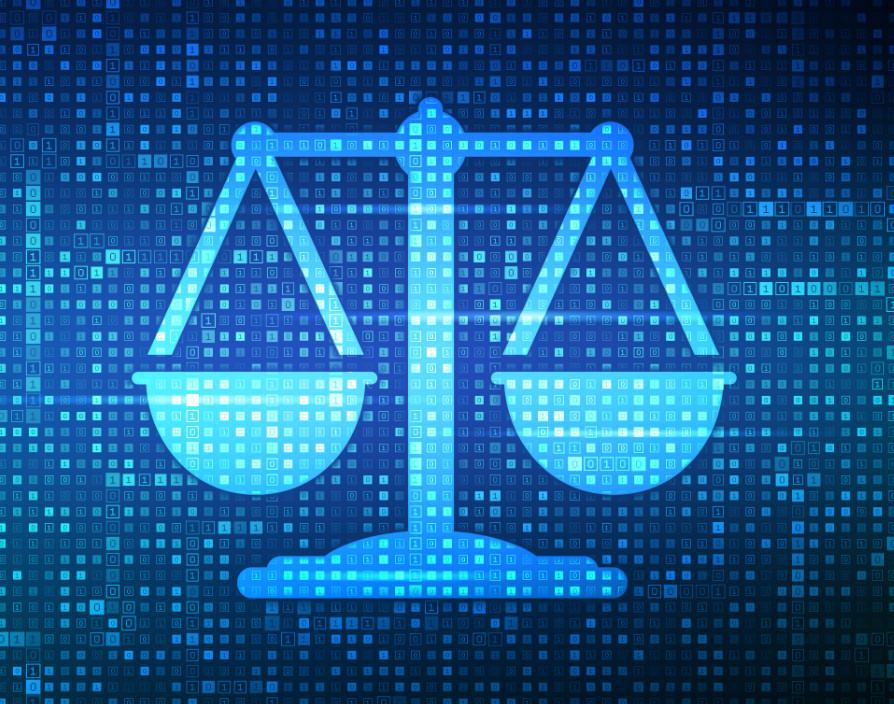Legal technology refers to the application of technology and innovation within the legal services industry, which is commonly aimed to increase efficiency, reduce time/costs and enable lawyers to provide a broader scope of services to clients. It is in fact not a new concept given the rise of the legal expert systems in the early 1980s and the Increased investments in legal tech companies throughout the years. The advantages of legal technology and innovation have undoubtedly been more recognised in part as a result of the COVID-19 pandemic. However, we believe emotional and human advice , support , bespoke drafting and ongoing monitoring and auditing is as important as efficiency so how do we bridge the gap between technology and human empathy and support? Can we?
Despite the wide-ranging ambitions, it appears that most legal tech companies are focused on delivery efficiencies and few on genuinely disruptive & bespoke solutions to traditional legal approaches. This could be explained as solicitors are bound by high professional and ethical rules, and the legal services sector is also strictly regulated, as such there are concerns and barriers as to the extent that technology can or should be implemented in the legal industry. Some have concerns that the technology can be bias due to those creating the programs ; some fear removing the human element risks mistakes and many professionals, like ourselves, fear populating templates means errors don’t get picked up until it’s too late.
What are the types of legal tech available ?
Nowadays there are various technological tools available for lawyers and firms to use. In particular, usage of video conferencing, cloud storage and e-signature platforms have increased considerably, especially during the pandemic. In addition, case management, legal research and billing software can also assist law firms in improving service quality and efficiency, and allowing their staff to work remotely where possible. Certain artificial intelligence (AI) tools have also been implemented to further reduce time/costs in delivery of legal services, such as chatbots, virtual assistants and interactive programmes to generate legal documents.
Doc-you-sign
This is a great and easy means of gathering signatures from multi-parties rather than face to face execution and postal delays . However, some legal documents are still required to be executed as a deed requiring witnesses and paper hardcopies. This may seam old fashioned , but if a dispute arises and where signatures were given (according to say IP addresses and locations) parties could argue it wasn’t them who accessed the email or they didn’t actually witness the signature and this could create a dispute for many cases in the future. As such caution as to the genuine acceptance, witnessing and execution of documents still needs to be afford , whilst embracing new swifter processes.
Artificial intelligence (AI)
The term ‘AI’ in the context of the legal tech refers to a wide range of technologies designed or intended to replicate actions traditionally performed by legal professionals, such as communication, drafting and reasoning. So populating documents , clauses and sending automated messages as an example . Generally, AI involves programming computer systems to process large volumes of data and ‘learn’ to answer questions or perform specific actions. As a result, AI is theoretically considered as capable of making more informed, efficient and consistent decisions without being affected by human errors and capacities. Some notable developments in the field of legal AI include document analysis, contract intelligence and case outcome prediction.
Key risks of using legal tech
Despite various benefits offered by legal tech, law firms and clients should still be wary of heavily relying on its products for the time being due to the following reasons:
- Certain providers promise delivery of documents or agreements within short timeframes for low costs, which may seem very attractive to start-ups or individuals on budgets. However, these tools should not be blindly relied upon as they still have many limitations and the output documents likely do not adequately reflect the clients’ needs, as they will not be bespoke and they will not understand the risk appetite or commerciality of some deals that on paper may not stack up.
- This software typically uses templates which very often rely on customers to populate and therefore they do fully understand the questions being asked of them or the wider implications. Often , start-ups tick a box to give consent to investors say , but say there are 10 and you need their signature on every document that’s just not practical or commercial and yet all the documents have been executed accordingly.
Therefore, clients should always ensure that their documents and contracts are reviewed or checked by qualified and experienced solicitors before signing to avoid these risks including, potential disputes and liabilities. As often these tick box facilities places the emphasis on the client to understand it all. Often the small print will also suggest that legal advice is sought on the documents.
- Furthermore, it can be extremely difficult to measure the accuracy of legal tech since there is no ‘sense check’ and there is real risk that once a mistake is made it can spread rapidly & populate other documents creating further issues relatively quickly. Often with legal agreements the issues are not immediately obvious, instead coming to light when you need to be able to rely on the documents, often during a dispute or time of need. Legal tech should, at least for the time being, be implemented with caution to help with certain legal processes, not to replace advice & audits : checks of human legal professionals in our opinion .
Potential legal and regulatory risks to lawyers and law firms:
There are template generating companies using this tech that are not regulated or managed by solicitors so they have restricted liability . In a law practice ultimately it is the lawyers who are responsible for the legal services supplied to clients as they are providers of regulated services and bound by strict professional and ethical rules as well as hefty insurance premiums. As such they are insured & they should critically and regularly examine their use of legal tech tools and what it is producing to ensure against risks of breaching legal and regulatory obligations & giving clients correct and robust documents that reflect all their needs. Ass such you would hope are in a safer pair of hands.
It is our opinion, that although making great strives to support the profession, legal tech has not yet developed to the stage where it can sufficiently and reliably replace human functions. We embrace technology but do so understanding it’s limitations and ultimately advice , commercial support , support and bespoke drafting cannot be replaced.
Cyber security risks:
As the popularity of legal tech integration increases, the security risks for both law firms and clients remain prevalent. Cloud storage is often advertised as a safer way for law firms to store and protect data from security breaches. However, studies showed that law firms are still seen as rich pickings for cyber criminals as they tend to hold a lot of sensitive client information, and technology providers themselves are susceptible to cyberattacks. As lawyers and law firms remain ultimately responsible for data held in their digital storage, they should choose their providers carefully to ensure compliance with relevant data protection legislation and minimise risks of data breaches. We maintain our current hard server data for this very concern, despite being ourselves tech savvy lawyers as we are assured 100% protection .
Working with many innovative tech clients, including those truly looking to disrupt the different market places, including legal tech we have witnessed the good, the bad and the future in the making. Whilst we use many forms of technology within our practice as we are paperless , we can work remote and use many of these resources we still offer our clients tailored honest advice, commercial and legal, we understand the tech as well as the legal issues and implications and are able to make sure our client’s do also. As such , we embrace technology , but are not ready to retire just yet.
Related links:
https://www.lawsociety.org.uk/topics/research/lawtech-comparative-analysis-of-legal-technology
Share via:









































